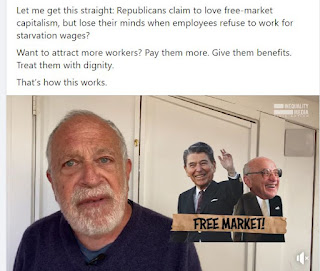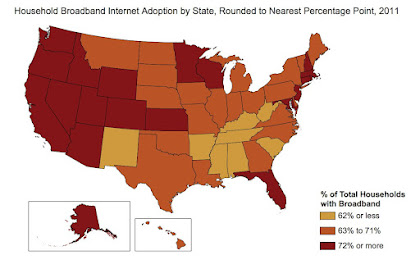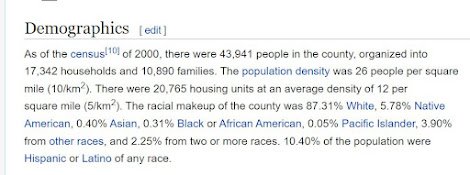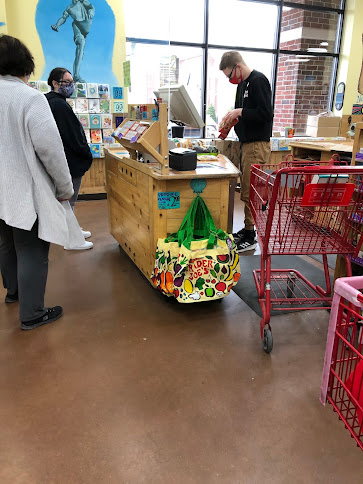On a message board I found this (abbreviated here):
Every election going forward in the foreseeable future is going to be increasingly bitter as this country rips itself apart. The 2020 election was more bitter than the 2016 election, and the 2024 will almost certainly be even more bitter, more violent, and result in increasing radicalization.
The only exception to this rule is that I suspect mainstream Democrats to continue to pretend this isn't happening..
I agree about the possibility of violence. But not the negative trend. The democrats have no choice but continue as is. We don't have socialism. It will be obvious when some plan for health insurance finally appears. It will be basically Obamacare with insurance companies under federal control. Or Medicare as is. The presidential candidates will be centrists.
The long term trend, however, is towards Democrats. People will eventually either join them, if they have any practical sense, or stay in red states where the republicans have local influence but less and less federal level control. The Senate will very soon go to the democrats by 5 seats or so and the GOP is out of it for a long time.
Anti-government sentiments will be strong in states and at the grass roots level. A large part, some 20-30% of the voters, will be lost to conspiracy theories forever. That way they can blame someone else for their personal failures.
The divide between the two parties has always been there. You cannot tell from turnout numbers alone who voted. But the multicultural groups are often low income, and election day is a work day. voting by mail eased that in 2020. From this graph we can guess that when voter turnout is 5% different from the year before, there was a major issue. In 2020 it was Trump.
The turnout is much the same. I can easily guess that the Trump voters turned out in equal numbers in 2008 and 2012. They hated Obama. But we did not see them so up close and personal until Trump rallies. When they liked someone, Trump, their racism and selfish opinions came out. They do not believe in society. They are out to take care of themselves and a few of their kind. The hatred of "foreigners" was always there, we saw that from DACA. But Trump brought it into focus.
The one thing that is entirely new is the election fraud claim. That could be expected, especially with the kind of personality cult Trump has. But it is something that is NOT normal. It appears that it was still easier for Trumpsters to lose prior to Trump, but now with Trump a shadow of his one time self, denial of the loss and a desperate attempt to change the course of events. The course is the slow change in favor of Democrats by the changing population.
The one thing that WILL keep the divide going is restricting voting. But the GOP can only do this easily in red states. And the battleground states are no longer the same for 2024. I will allow Wisconsin to be still about a 50/50 and the legislature has been attempting the usual tricks. But I predict ALL the battleground states will go the same as they did for Biden. In addition we have some laws, the John Lewis one, in the works. By the end of 2021, Biden and the Senate will allow filibuster to be "carved out" for the one law.
Democrats and Republicans
I am not saying all democrats are some kind of do-gooders. In many respects in daily life people behave much the same. I ride some 5 or 10 miles each morning on our city bike trails. There are annoying dog walkers talking on phones with an ear piece that i find hard to pass. I ring my bell, nothing happens. But these are almost equally members of either party. Most people are selfish. it is in the bigger matters at city and country level that Democrats are willing to give something away if it makes a more stable, prosperous society. If you are in business, you want customers. republicans are willing to support others in a much more limited way. Generally they do not vote for things they will never use.
On my 15 mile loop around mostly bike trails, I do have a busy intersection where people in cars show their worst behavior. I use a crosswalk at a light. There are only joggers and bikes there, no families. Big SUVs, pickups and service vans (white working class?) block my cross walk routinely. I have never had a Prius block my way. The party affiliation is obvious.
The average democrat will support electric cars, green energy and public transport. It just comes down to affordability. I cannot afford at Tesla at this time, and probably never. I will not be driving much 20 years from now. But I support the idea and the owners. The Trump voters are devoted fossil fuel people. They hate Teslas and wind turbines.
COURTS
I don't want to start a whole new column on this, but in the Eastern part of the country, up to Missouri, courts are going to a more liberal side,. Appointments of judges are discussed here:
POLITICO ARTICLE
Quotes:
On Feb. 28, 1991, 17-year-old Robert Saleem Holbrook sat before a judge in a Philadelphia courtroom waiting to learn if he would spend the rest of his life behind bars.
Thirteen months earlier, on the night of his 16th birthday, Holbrook had served as a lookout for a drug deal gone wrong that ended in the murder of one of the participants. Despite never laying a hand on the victim, Holbrook was charged with first-degree murder, a capital offense in Pennsylvania. Facing the death sentence, he entered a plea deal for general murder, hoping that the judge overseeing his case would settle on a third-degree murder charge, which carried a penalty of 10-20 years in prison. Instead, claiming that his hands were tied by mandatory sentencing guidelines, the judge found Holbrook guilty of murder in the first degree. Under Pennsylvania law, the conviction carried a punishment of life in prison without the possibility of parole.
Thirty years later, Holbrook is, to use the lingo of the criminal justice system, “decarcerated,” thanks to a 2012 decision by the United States Supreme Court that found that life sentences without the possibility of parole for minors violated the Eighth Amendment.
(snip)
In 2018, for example, a coalition of criminal justice reform groups based in Philadelphia joined forces to organize the
Judge Accountability Table, an organization dedicated to educating Philadelphians about candidates in the city’s judicial races. Ahead of the Democratic primaries this past year, the group held a series of virtual public forums with candidates running for the city’s municipal and common pleas court and invited candidates to answer a
public questionnaire about their judicial philosophy and approach to key issues facing the judiciary. The questionnaire included questions such as, “Do you feel that implicit bias plays a role in our courts? If so, how do you think it should be addressed?” and “What role should judges play in making courts more transparent and accessible to members of the community? What will you commit to do if elected judge?”












































